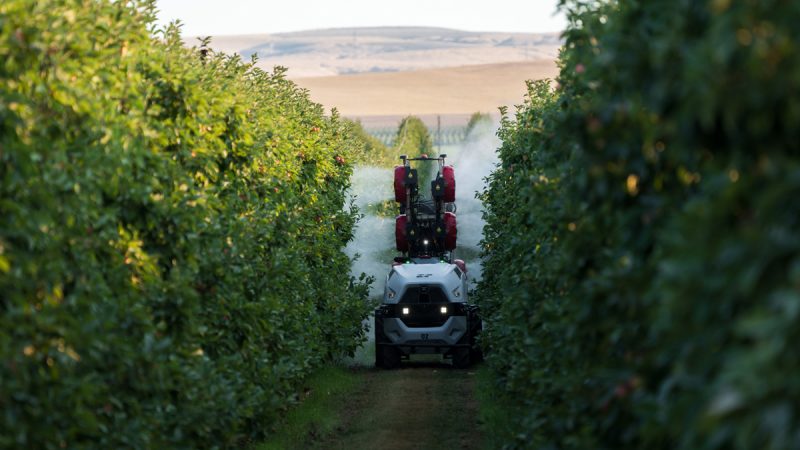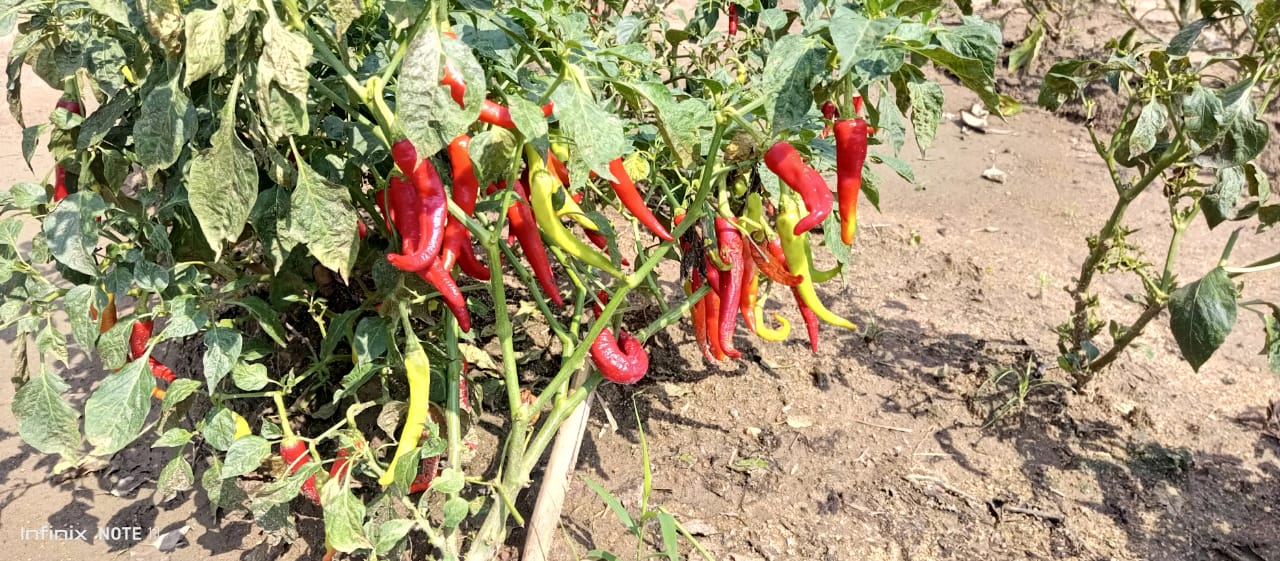
The Crops Research Institute is researching into new and improved Lines, previously termed ‘varieties’ of chili pepper to increase the options available to farmers and consumers not only in Ghana, but for export as well.
In line with a new policy of demand-driven research approach, key stakeholders including farmers, have been involved in the selection of the desirable Lines that have the higher potential of on-field yield and economic value as they have been brought to the research site at Kwadaso near Kumasi in the Ashanti region for a field trip.
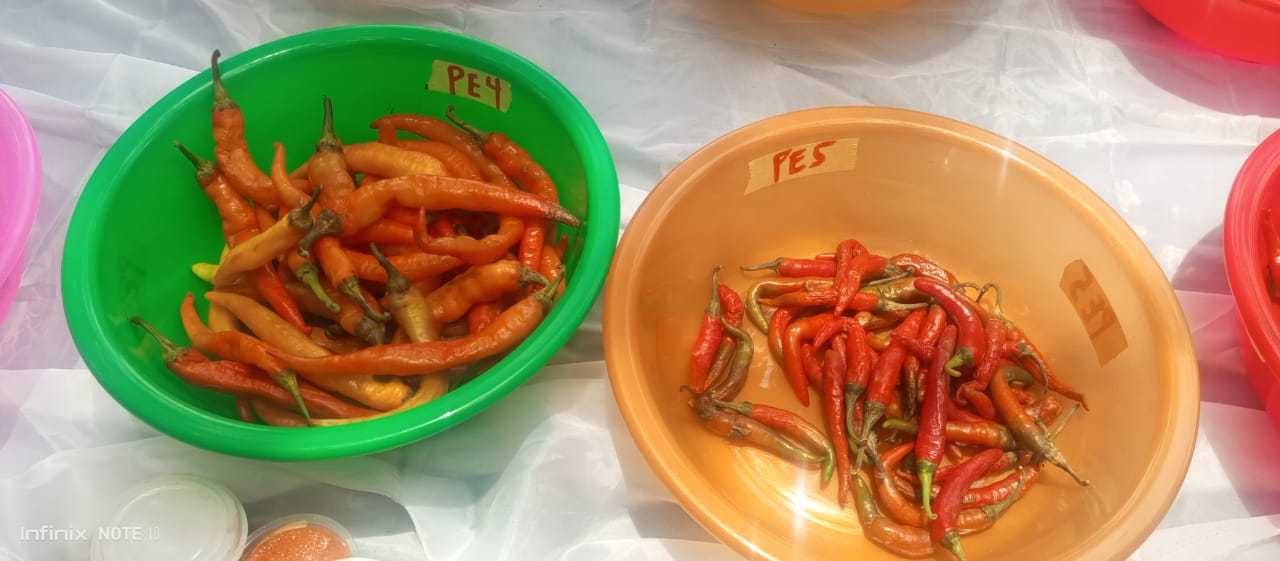
The two-year research which started early this year, is in partnership with the World Vegetables Centre based at Taiwan which provided some of the study materials with funding by UKAID with an amount of 30 thousand Dollars and is expected to end next year.
Dr. Osei, who is the Principal Investigator of the project, is researching into 28 Lines previously known as varieties of chili pepper to determine which has or have the most desirable and better qualities to meet demand of the local and international market.
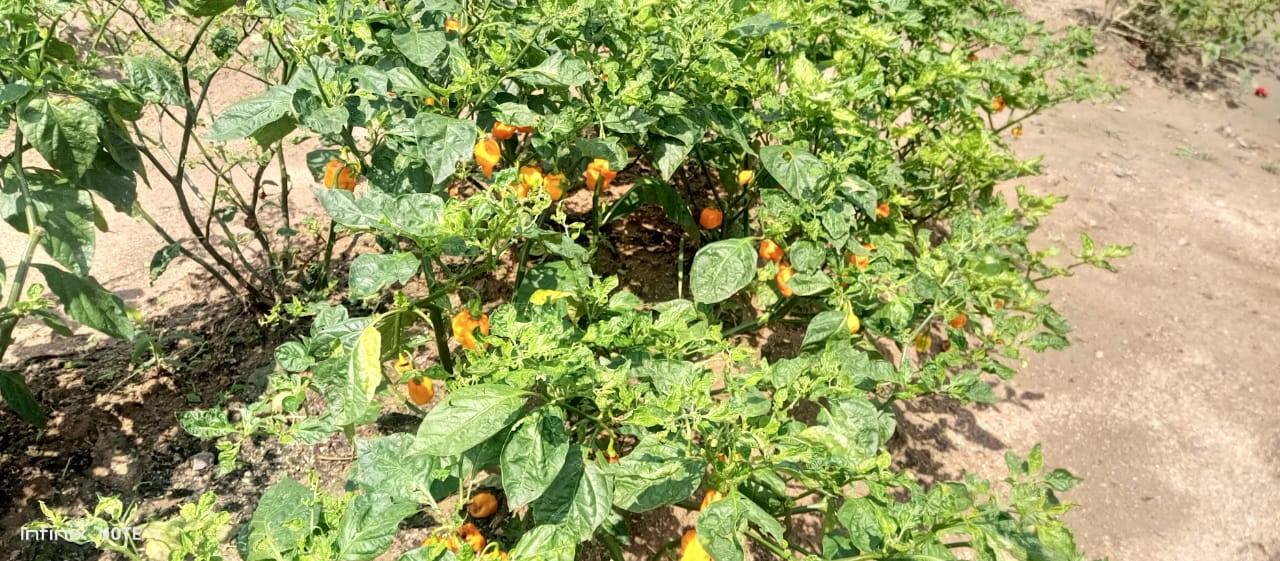
The existing two varieties have a yield of between 32 and 35 tonnes per hectare but some of the Lines being studied have already shown the ability to yield more than 40 tonnes per hectare with a maturity period ranging from 90 to 150 days which are much superior in qualities to the available ones.
A new approach to crops breeding by the Research Scientists is to actively involve players in the value chain such as farmers in the study process to guarantee that the eventual approved and registered varieties will be accepted and adopted for mass and commercial production hence the Field Trip to the Kwadaso Station where Dr. Osei is undertaking the pepper research.
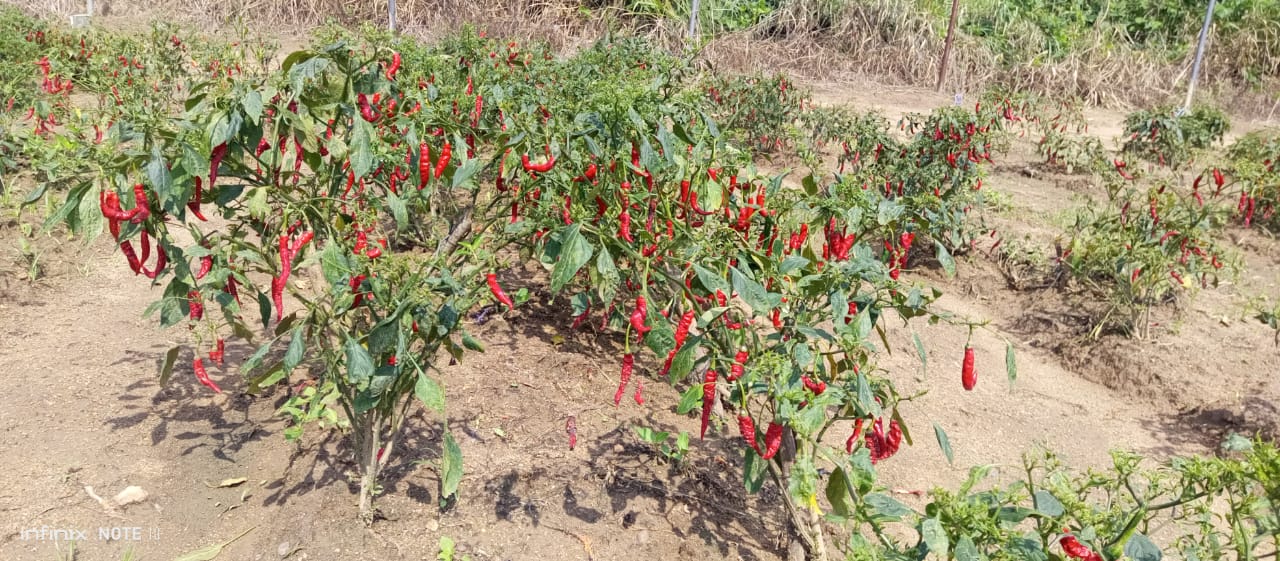
The participants were pepper farmers from Berekum in the Bono region and Akomadan in the Offinso North district in Ashanti.
Also participating were some market women who trade in pepper and Extension Officers.
They visited the trial field and individually observed and evaluated the Lines to determine which ones appeared superior in quality to them. They were also made to taste and smell the ground mature pepper fruits to determine which ones had the hottest taste and strongest pungent smell while finding out the potential yield and longer shelf life.
After these activities, Nana Kwame Boateng, a Pepper farmer who is also the Gyaasehenne of Akomadan, observed “the varieties we are cultivating now peaks after just 6 months of planting but what we have seen here are able to bear fruits every two weeks for more than the lifespan of the existing ones. If we follow the advice of the breeders, pepper would end our poverty.”
On her part, 47-year old widow and mother of four, Madam Naomi Ofori, who has been in the pepper farming for about 20 years, noted “I have realized very high prospects in these new varieties. They don’t only bear much fruits but are fleshy too.”
The Principal Investigator of the project, Dr. Michael Kwabena Osei told ‘Ashanti Today’ that the exercise forms part of the demand-driven approach to crops breeding activities of the CRI.
“We have assembled market players, farmers, seed companies and all the stakeholders to evaluate together. These varieties come in different shapes, in terms of pungent whether hot or mild and in terms of size. We are here to help to select together with the farmers and then we do multi location trials followed by on-farm evaluation”, the Principal Investigator explained further.
The Director of the CRI, Professor Moses Mochia, blamed the lack of involvement of especially farmers in the research processes as part of the causes why previous released superior quality crop varieties developed by the Institute were not fully adopted by farmers as expected hence the new approach.
The Head of delegation from the World Vegetables Centre in Taiwan, Dr. Derek Brachenger, who is himself a Pepper Breeder, explained that the interest of the Centre is to help Ghana, a major producer of pepper and tomatoes, to undertake the crops on sustainable bases without or with less organic fertilizers application and pesticide.
Since the year 2000 when the Crops Research Institute, CRI is one of the 13 subsidiaries of the Council for Scientific and Industrial Research, began its research development partnership with the World
Vegetables Centre based in Taiwan, it has released only two pepper varieties that are currently being cultivated by farmers.
That was in 2005. But chili pepper has been identified to have higher foreign exchange earning prospect with countries such as France, Germany and The Netherland as having higher demand.
Locally too, its cultivation is confirmed as a viable economic value for poverty reduction within the rural areas.
These are some of the reasons that have encouraged a Research Scientist at the Kwadaso CRI Station, Dr. Michael Kwabena Osei to venture into developing new and better varieties of the crop to serve local and international markets.

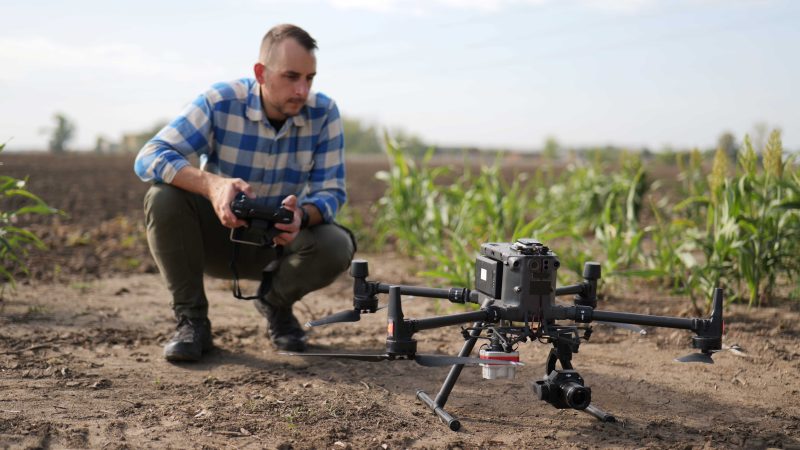
![African agricultural journalists elect new officials [MEET THE TEAM]](https://www.dailyagricnews.com/wp-content/uploads/2025/03/PAAJ-logo-768x768-1-768x450.webp)

